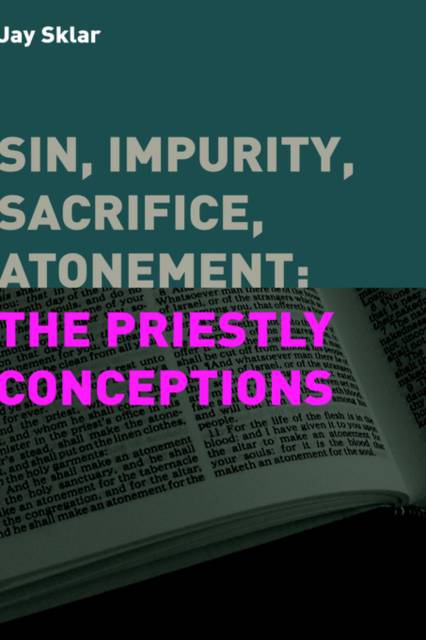
- Afhalen na 1 uur in een winkel met voorraad
- Gratis thuislevering in België vanaf € 30
- Ruim aanbod met 7 miljoen producten
- Afhalen na 1 uur in een winkel met voorraad
- Gratis thuislevering in België vanaf € 30
- Ruim aanbod met 7 miljoen producten
Zoeken
€ 115,45
+ 230 punten
Uitvoering
Omschrijving
The goal of this closely reasoned study is to explain why, in Priestly texts of the Hebrew Bible, the verb kipper, traditionally translated 'atone', means the way of dealing both with sin and with impurity-which might seem very different things. Sklar's first key conclusion is that when the context is sin, certain sins also pollute; so 'atonement' may include some element of purification. His second conclusion is that, when the context is impurity, and kipper means not 'atone' but 'effect purgation', impurity also endangers; so kipper can include some element of ransoming. The goal of this closely reasoned study is to explain why, in Priestly texts of the Hebrew Bible, the verb kipper, traditionally translated 'atone', means the way of dealing both with sin and with impurity-which might seem very different things. Sklar's first key conclusion is that when the context is sin, certain sins also pollute; so 'atonement' may include some element of purification. His second conclusion is that, when the context is impurity, and kipper means not 'atone' but 'effect purgation', impurity also endangers; so kipper can include some element of ransoming. The goal of this closely reasoned study is to explain why, in Priestly texts of the Hebrew Bible, the verb kipper, traditionally translated 'atone', means the way of dealing both with sin and with impurity-which might seem very different things. Sklar's first key conclusion is that when the context is sin, certain sins also pollute; so 'atonement' may include some element of purification. His second conclusion is that, when the context is impurity, and kipper means not 'atone' but 'effect purgation', impurity also endangers; so kipper can include some element of ransoming. In fact, sin and impurity, while distinct categories in themselves, have this in common: each of them requires both ransoming and purification. It is for this reason that kipper can be used in both settings. This benchmark study concludes with a careful examination of the famous sentence of Leviticus 17.11 that 'blood makes atonement' (kipper) and explains how, in the Priestly ideology, blood sacrifice was able to accomplish both ransom and purification. In fact, sin and impurity, while distinct categories in themselves, have this in common: each of them requires both ransoming and purification. It is for this reason that kipper can be used in both settings. This benchmark study concludes with a careful examination of the famous sentence of Leviticus 17.11 that 'blood makes atonement' (kipper) and explains how, in the Priestly ideology, blood sacrifice was able to accomplish both ransom and purification. In fact, sin and impurity, while distinct categories in themselves, have this in common: each of them requires both ransoming and purification. It is for this reason that kipper can be used in both settings. This benchmark study concludes with a careful examination of the famous sentence of Leviticus 17.11 that 'blood makes atonement' (kipper) and explains how, in the Priestly ideology, blood sacrifice was able to accomplish both ransom and purification.
Specificaties
Betrokkenen
- Auteur(s):
- Uitgeverij:
Inhoud
- Aantal bladzijden:
- 228
- Taal:
- Engels
- Reeks:
- Reeksnummer:
- nr. 2
Eigenschappen
- Productcode (EAN):
- 9781905048120
- Verschijningsdatum:
- 21/10/2005
- Uitvoering:
- Hardcover
- Formaat:
- Genaaid
- Afmetingen:
- 164 mm x 243 mm
- Gewicht:
- 449 g

Alleen bij Standaard Boekhandel
+ 230 punten op je klantenkaart van Standaard Boekhandel
Beoordelingen
We publiceren alleen reviews die voldoen aan de voorwaarden voor reviews. Bekijk onze voorwaarden voor reviews.











